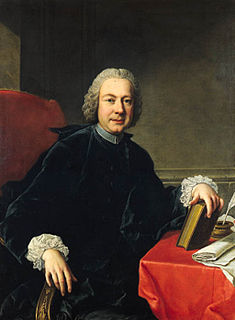A Quote by Maximus the Confessor
Just as the thought of fire does not warm the body, so faith without love does not actualize the light of spiritual knowledge in the soul.
Related Quotes
The chief evil with relation to the body is love for the body and pitying it. This takes away all the soul's authority over the body and makes the soul the slave of the body. And on the contrary, one who does not spare the body will not be disturbed in whatever he does by apprehensions born of blind love of life. How fortunate is one who is trained to this from childhood!
One whose soul does not wander in the expanses, one who does not seek the light of truth and goodness with all his heart, does not suffer spiritual ruins - but he will also not have his own self-based constructions. Instead, he takes shelter in the shadow of the natural constructions, like rabbits under boulders. But one who has a human soul cannot take shelter in anything other than constructions that he builds with his own spiritual toil.
Darkness is a lower energy than light, and when you bring light to the presence of darkness you don't have to warn it, you don't have to tell it that it has to get away. It can't survive. Light dissolves darkness. And so does love dissolve hate and so does joy dissolve sadness and so does faith dissolve doubt and so on.
I said to my soul, be still and wait without hope, for hope would be hope for the wrong thing; wait without love, for love would be love of the wrong thing; there is yet faith, but the faith and the love are all in the waiting. Wait without thought, for you are not ready for thought: So the darkness shall be the light, and the stillness the dancing.
Because, according to the sage Solomon, wisdom does not enter into a soul that seeks after evil, and knowledge without conscienceis the ruin of the soul, it behooves you to serve, love and fear God and to put all your thoughts and hope in him, and by faith founded in charity, be joined to him, such that you never be separated from him by sin.
Just as in the body, eye and ear develop as organs of perception, as senses for bodily processes, so does a man develop in himself soul and spiritual organs of perception through which the soul and spiritual worlds are opened to him. For those who do not have such higher senses, these worlds are dark and silent, just as the bodily world is dark and silent for a being without eyes and ears.
Evil does not exist sir, or at least it does not exist unto itself. Evil is simply the absence of God. It is just like darkness and cold, a word that man has created to describe the absence of God. God did not create evil. Evil is not like faith, or love that exist just as does light and heat. Evil is the result of what happens when man does not have God's love present in his heart. It's like the cold that comes when there is no heat or the darkness that comes when there is no light.
We may treat of the Soul as in the body - whether it be set above it or actually within it - since the association of the two constitutes the one thing called the living organism, the Animate.Now from this relation, from the Soul using the body as an instrument, it does not follow that the Soul must share the body's experiences: a man does not himself feel all the experiences of the tools with which he is working.
Without the power of intelligence there is no capacity for spiritual knowledge; and without spiritual knowledge we cannot have the faith from which springs that hope whereby we grasp things of the future as though they were present. Without the power of desire there is no longing, and so no love, which is the issue of longing; for the property of desire is to love something. And without the incensive power, intensifying the desire for union with what is loved, there can be no peace, for peace is truly the complete and undisturbed possession of what is desired.
God is not pleased by blood – and not acting reasonably is contrary to God's nature. Faith is born of the soul, not the body. Whoever would lead someone to faith needs the ability to speak well and to reason properly, without violence and threats... To convince a reasonable soul, one does not need a strong arm, or weapons of any kind, or any other means of threatening a person with death.
It is God's earth out of which man is taken. From it he has his body. His body belongs to his essential being. Man's body is not his prison, his shell his exterior, but man himself. Man does not "have" a body; he does not "have" a soul; rather he "is" body and soul. Man in the beginning is really his body. He is one. He is his body, as Christ is completely his body, as the Church is the body of Christ
As you know, shibumi has to do with great refinement underlying commonplace appearances. It is a statement so correct that it does not have to be bold, so poignant it does not have to be pretty, so true it does not have to be real. Shibumi is understanding, rather than knowledge. Eloquent silence. In demeanor, it is modesty without pudency. In art, where the spirit of shibumi takes the form of sabi, it is elegant simplicity, articulate brevity. In philosophy, where shibumi emerges as wabi, it is spiritual tranquility that is not passive; it is being without the angst of becoming.






























